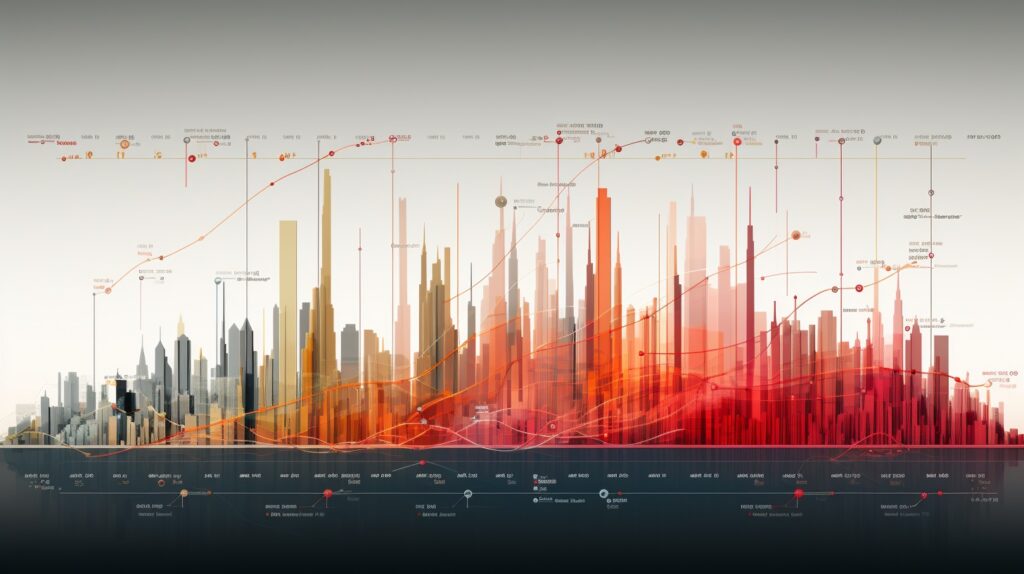Introduction
Nigeria, a prominent country in Africa, has been ranked low in the 2022 Global Real Estate Transparency Index (GRETI) released by JLL and LaSalle Investment Management. This index serves as an important benchmark to assess the transparency of real estate markets across various countries and territories. In the following sections, we will explore the key findings of the report, the factors contributing to Nigeria’s low ranking, and potential areas for improvement.
The Global Real Estate Transparency Index
The Global Real Estate Transparency Index is an extensive survey conducted by JLL and LaSalle’s network of real estate market experts. It evaluates the transparency of real estate markets in 94 countries and territories, encompassing 156 cities worldwide. The index consists of 254 individual indicators that assess transparency across six key categories, namely investment performance measurement, market fundamentals, governance of listed vehicles, regulatory and legal environment, transaction process, and sustainability transparency [1].

Nigeria’s Ranking and Key Findings
Out of the 156 cities assessed in the GRETI 2022, Nigeria was ranked 60, indicating a relatively low level of transparency in its real estate market [2]. The report highlights a widening transparency gap as leading countries establish higher standards, covering areas such as energy efficiency, climate risk reporting, anti-money laundering, and beneficial ownership reporting [2].
Sustainability emerges as a crucial driver of transparency improvements globally, with an increasing number of countries and cities implementing mandatory energy efficiency and emissions standards for buildings. However, the report notes that sustainability measures remain among the least transparent globally, posing challenges for investors and companies due to the diverse standards and benchmarks at different levels of governance [2].
Factors Influencing Nigeria’s Ranking
Nigeria’s lower ranking in the Global Real Estate Transparency Index can be attributed to several factors. The report mentions the establishment of the Lagos State Real Estate Regulatory Authority and the development of an online portal for planning applications as positive steps that contributed to Nigeria’s rating improvement. However, overall progress in the Sub-Saharan Africa region has been slow, with limited advancements in recent years [2].
The fractured regulatory landscape, with different standards at various levels of governance, presents challenges for investors and companies seeking to navigate the real estate market efficiently. The lack of standardized data and benchmarks further complicates transparency efforts. These factors contribute to Nigeria’s lower ranking and highlight the need for alignment, harmonization, and improved data standardization [2].
Opportunities for Improvement
Enhancing transparency in Nigeria’s real estate market is crucial for fostering investor confidence, attracting foreign investment, and driving sustainable growth. To improve its ranking in future editions of the Global Real Estate Transparency Index, Nigeria can consider the following opportunities:
1. Regulatory Reforms and Standardization
Nigeria should continue its efforts to streamline regulatory processes and enhance governance structures in the real estate sector. Standardizing data collection methods and establishing clear benchmarks can help create a more transparent and predictable environment for investors and market participants.
2. Sustainability Reporting and Energy Efficiency
Investing in sustainability measures and adopting green building practices can significantly improve Nigeria’s real estate transparency. Implementing mandatory sustainability reporting, setting energy efficiency standards, and encouraging the adoption of green certifications can enhance transparency and align the country with global sustainability standards.
3. Technology Adoption
Embracing real estate technology platforms can boost transparency by providing timely and granular data. Nigeria should encourage the use of innovative solutions such as real-time occupancy tracking, data aggregators, and digital twins for urban planning. Promoting technology adoption can enhance market visibility and facilitate data-driven decision-making.
4. Collaboration and Knowledge Sharing
Collaboration between government agencies, industry stakeholders, and international organizations is vital to drive transparency improvements. Sharing best practices, exchanging knowledge, and learning from countries with higher transparency rankings can help Nigeria identify effective strategies and accelerate progress.

Conclusion
Nigeria’s ranking in the Global Real Estate Transparency Index reflects the need for continued efforts to enhance transparency in the country’s real estate market. By implementing regulatory reforms, embracing sustainability practices, leveraging technology, and fostering collaboration, Nigeria can improve its transparency ranking, attract investment, and create a thriving real estate sector. Ensuring a transparent and predictable environment will benefit both local and international investors, contributing to the country’s economic growth and development.
















